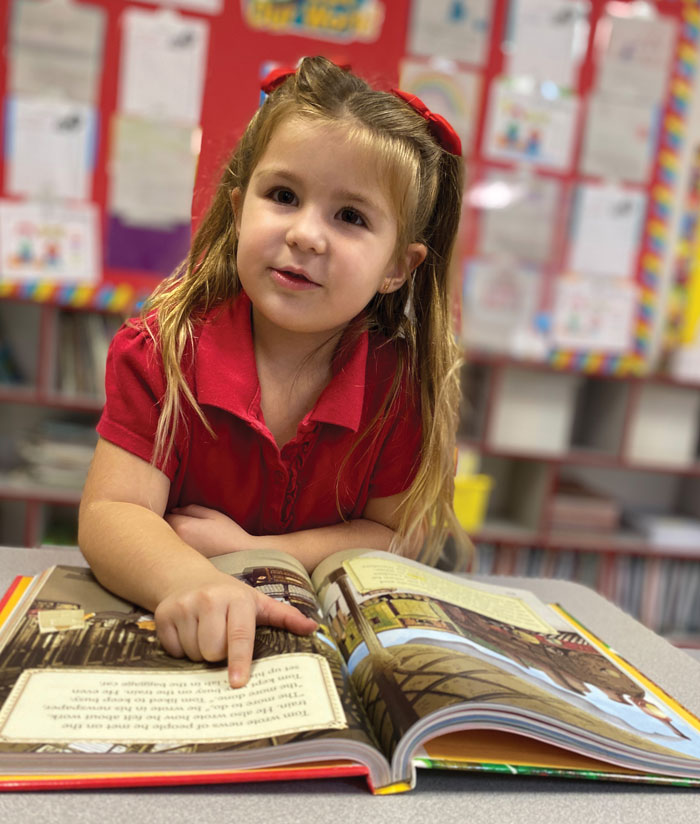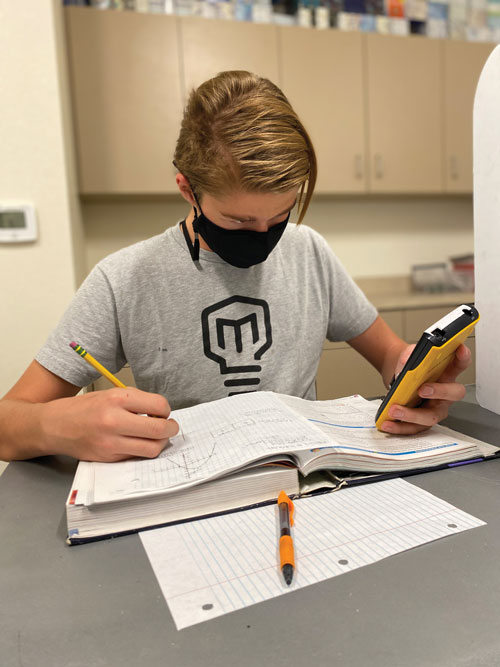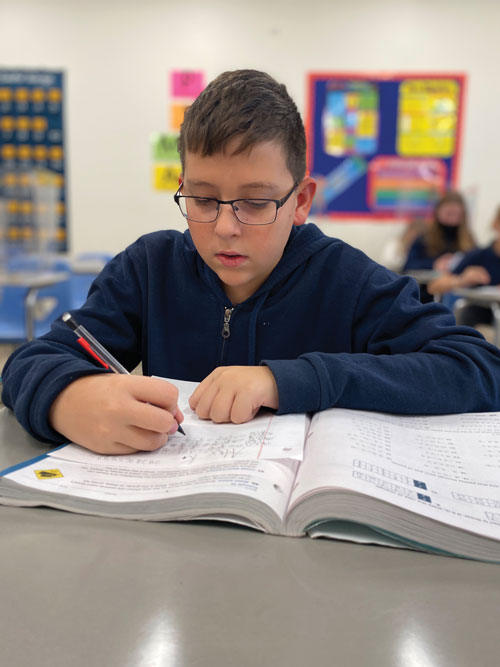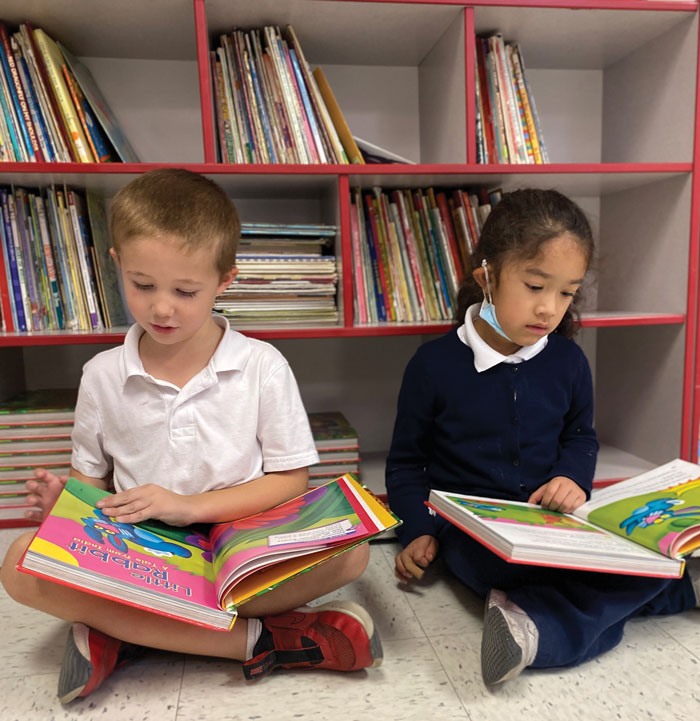At Self Development Academy, I have been given many opportunities including the opportunity to start middle school at age 10. I have been able to learn at my own level. I sometimes do not even realize that I am learning material that people at other schools do not see until high school or college because I have been learning content two grade levels above my own since I was seven years old. I now have an opportunity to go to high school and take college courses earlier than other people,” said Nia Jebaraj, a 7th grader.
Educators, leaders, parents, and students knew that the year lost to the pandemic would include learning losses — significant losses. The Brookings Institute, a think tank, studied the learning losses over time. The picture they paint is grim.
The think tank used the word to editorialize, providing emotionally evocative adjectives to data. Yet, the 50 percent drop in math, and an almost equally significant drop in reading, cannot be described in words other than grim or bleak.
Grim indeed. But not ubiquitous. We will share what we see at Self Development Academy (SDA) and more importantly, what we are doing to lessen the loss of learning. Fortunately, we escaped the gravity of falling test scores as reported by many sources, including The Washington Post.
The lost year to COVID was not repeated at SDA, not just because of our staff, but also because of our students. It is a matter of two simple principles: reciprocal kindness and classroom-led discussions facilitated by the teacher. I guess what we are saying is that there is an instinct that no matter how dire our world can be, children’s guiding psychology development will always tend toward goodness and self-development. Simply, it is the human will to be wise.
SDA is run by learned researchers. When COVID demonstrated pockmarks in our system, an audit of our program was in order. We concluded soon after that two programs would work best based on agency and kindness.
With agency, the teacher is a facilitator, the classroom is a symphony, and the students are motivated to become critical and creative thinkers. And by emphasizing kindness, our program slowly retrains students to exhibit self-regulated behavior, reinforced positively by peers who provide compliments to their classmates for displaying the very behavior.
PART I: THE PEER PROGRAM (POSITIVELY ENHANCED EDUCATION THROUGH RECIPROCITY)
We noticed immediately an important similarity between last year and this year — demeanor. Children this year were displaying all the same chair poses they did last year at home. The current year’s behavior in-person or COVID year behavior remotely was similar: not tracking the speaker, legs not on the floor, and iteratively tapping pencils.
Children spent an entire year learning that they were able to determine what they were going to do during the day. With less engaging material, there were fewer reasons to pay attention to academic learning.
How are we fixing this at SDA? Combining basic psychological principles of peer identity reinforcement, positive reinforcement, and reciprocity, we came up with a game plan where peers celebrate each other’s behavior changes, with the goal of a perfect learning environment. It is called our PEER Program (Positively Enhanced Education through Reciprocity).
PART 2: THE CLASSROOM AS A SYMPHONY
At SDA, we desire brilliant discussions in our classrooms. For that, we need dynamic, probing teachers who see the classroom as a symphony, each instrument as an ability level, bringing up the lower performing students to introduce concepts, and higher performing to answer the difficult questions. Such an environment is not found in elementary schools but is ubiquitous in law schools and graduate schools.
If you see children as instruments in the classroom, the classroom as a symphony, and the teacher as a conductor, such a metaphoric mental framework enables what psychologists call the Zone of Proximal Development (ZPD). ZPD is a term developed by a transformative psychologist whose theory states that the best type of learning is done when the teacher is far enough away to allow the child to learn and think but close enough in case it is impossible.
We make learning fun and engaging as evidenced by students’ tendency to raise their hands and excitedly standing up with their raised hands. The more engaged children are, the higher their bodies go in elevation.
This year, at SDA, we are seeing student learning growth greater than previous years. Our kindergarten students are already reading fluently and with expression in Ms. Haschke’s class. Our full class of 6th-grade students are motivated to take on the challenge of Algebra I, and some of our 8th-grade students are enjoying Algebra II.
Our students are eager to learn and gain knowledge. Thanks to SDA’s two programs: kids complimenting each other and handing over learning to children while making sure teachers are there to push, prod, and probe to the penultimate.
Yes, it was a pandemic year last year. Yet, the environment at SDA is an exception. Students’ learning rest on what ultimately makes for a happy human being — Agency and Kindness.
Self Development Academy is now enrolling for the school year 2022-2023. For more information about Self Development Academy, please call (480) 641-2640 or visit our website: selfdevelopmentacademy.com





